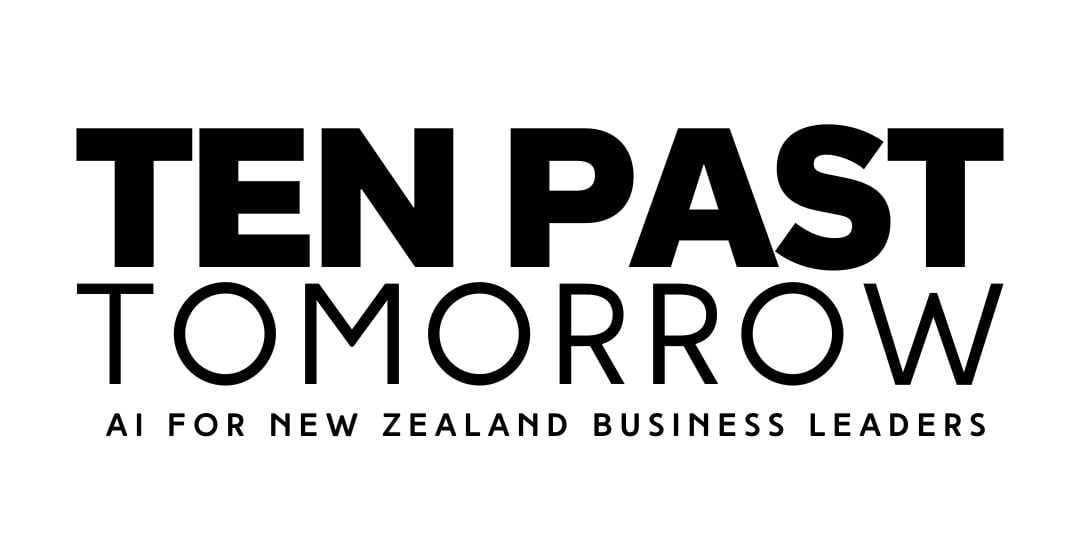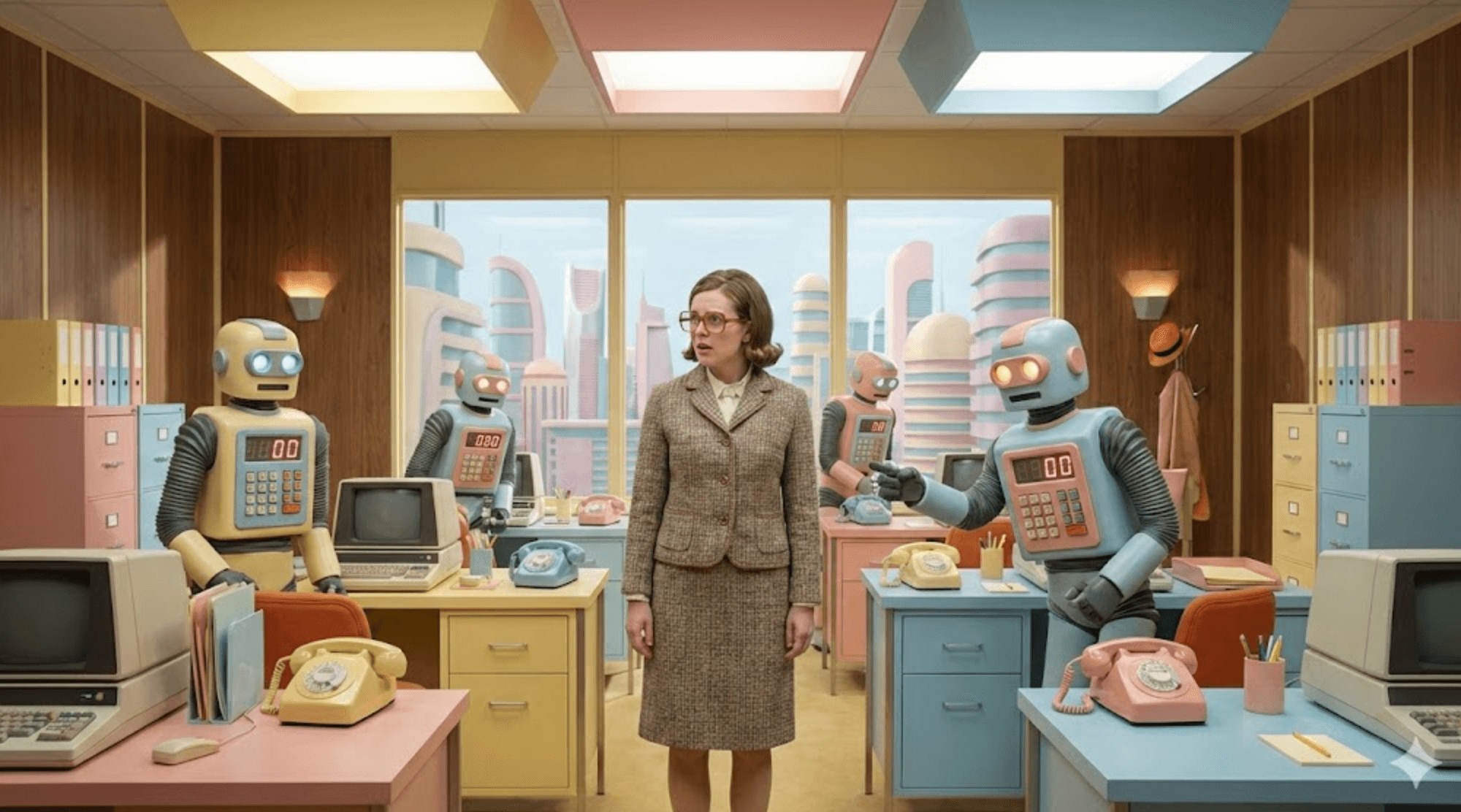AI demands visionary leaders: Your business does too
To a large extent the success (or otherwise) of AI integration into any given company is closely tied to whether or not that company’s leadership is sufficiently visionary.
From my own work with clients, from industry conversations, and from monitoring best practice use cases around the world, I can see that not all leaders are equipped to navigate the next few years of widespread AI integration and adoption.
It will be the companies who have leaders with foresight, courage, and strategic acumen who will be able to steer their companies through what will be some turbulent years ahead, as AI evolves whole industries and business models.
In short; AI is as much a challenge of cultural change and leadership, as it is a technical challenge.
An example of visionary leadership
In recent weeks, the biotech giant Moderna has become somewhat of a surprise poster child for what visionary leadership can achieve by weaving AI throughout all levels of a company.
You can read the full press release here, but in a nutshell, Moderna has formed a partnership with OpenAI to integrate AI across its entire org.
The goal? To accelerate the development of life-saving mRNA treatments.
The results? In just two short months, they developed a mind-boggling 750 custom GPTs across the company, and saw a level of employee engagement with AI (80%) that I haven’t seen in any other company of Moderna’s size.
CEO Stéphane Bancel says the aim is "to ‘redesign every business process’ with AI, allowing the 3,000-person team to perform like 100,000.”
To me, that’s a powerful and noble objective for AI.
Putting aside the fact the case study is designed and written by OpenAI, and acknowledging the clear bias within that scenario, let’s focus on the theme of visionary leadership that Moderna are showing to drive AI adoption of that magnitude.
This is not about buying a few ChatGPT subscriptions and letting employees run wild.
What I see in this case study is leadership that is setting a clear vision, allocating resources, and really putting time and effort into AI education, skills training and fostering a culture of innovation for their employees.
To my eyes, by acknowledging all of the cultural and process change that will be necessary to re-shape an organisation around AI’s capabilities, it is leaders like Bancel that will create an environment where AI can really thrive.
 "Frank, I can see you out of the corner of my eye. Pull up your hat and shave that mo."
"Frank, I can see you out of the corner of my eye. Pull up your hat and shave that mo."
Is your business AI native, AI emergent or.. obsolete?
If we accept that the Moderna case study above is an excellent example what visionary leadership, then to explain why I think this type of leadership is going to be so critical in the coming years, I’ll now paraphrase the words of one of my favourite AI commentators, Paul Roetzer.
The passage below is from Paul’s excellent essay “The Future of Business Is AI, or Obsolete”, which I highly recommend you read in full.
There will be three types of businesses in every industry: AI Native, AI Emergent and Obsolete.
I keep running through examples in my mind - and I can’t come up with an industry or business model where this won’t be true.
But, why now? What makes this moment in time different from the never-ending cycle of digital transformation?
Consider the following:
-
- Data, and our need to understand and act on it, continues to expand exponentially.
-
- Consumers demand convenience and personalisation in both B2B and B2C marketing, sales, and service.
-
- Leadership expects ever-improving performance, while favouring efficiency in talent and the allocation of financial resources.
-
- Predicting human behaviour and business outcomes are essential to reducing uncertainty. Boards, investors and company leaders hate uncertainty.
-
- The power and speed of cloud computing continue to rise, as a result the cost of building AI applications continues to fall, democratising access and opportunity.
-
- Google, Microsoft, Amazon, Apple, Meta, NVIDIA, Salesforce, Adobe, IBM are all chasing the golden goose of generative AI, with no concern for the costs they must spend to be competitive in the AI arena.
-
- Venture capital money is pouring into startups that are building smarter, AI-powered solutions across every industry.
- The rate of AI-powered innovation is accelerating, opening up seemingly endless possibilities for entrepreneurs with the will and vision to drive change.
When you consider all these factors together, it’s the perfect storm for wide-scale disruption, and once-in-a-lifetime wealth creation and career advancement.
I acknowledge that that passage can be very intimidating to read.
No business leader wants to hear that an emerging technology has the potential to render them obsolete within the next few years.
However, I believe the inverse is also true.
For those leaders with sufficient vision, the potential to evolve with AI is not only eminently achievable, but also very rewarding.
The specifics
As much as anyone, I get frustrated by statements like…
"The AI path forward is clear. It starts with developing a bold, transformative vision for how AI can reshape their business, and then aligning stakeholders around that vision."
- ChatGPT
So then, what specifically do visionary leaders have to be willing to do to truly adopt AI… to challenge the status quo, and to invest in the necessary change across strategy, talent, infrastructure and culture?
Well, the short answer is; that’s what I do (hint, hint) with and for clients and their leaders.
The slightly longer answer is that it takes initiatives like internal AI communities, hands-on workshops, and comprehensive change management strategies to build an AI-ready workforce.
It also takes a recognition from leaders that we’ll need to address things together like:
- People. What is their current AI skillset, where are the gaps, what education and training do they need? Do you have established change management practices and methodologies? What is the internal attitude to change in your org?
- Strategy. What advantages do you already have that can be amplified by AI? What parts of your company structure and processes can be augmented by AI? Similarly, what aspects of the org are put under threat by AI?
- Pace. Is AI going to look like huge dramatic innovations in your company, or more like progressive, controlled iterations of improvement?
- Risk assessment and management. What legislation, regulation and ethics need to be considered within the context of your company and its people, to make AI governable and safe?
- The wider view. How is AI being adopted, harnessed and/or misused already within your industry and/or by your competitors.
It’s easy to deploy AI tools. Any leader can do that.
But only visionary leaders are preparing their companies properly for the full transformation that will be required to make them ‘AI Emergent’.
How will you play it?
I guess what I’m really saying in this article is...
The path to AI success isn't necessarily hard, but nor is it quick or for the faint of heart – it requires vision, bravery, and a genuine commitment to staying ahead of the curve.
But I know that those leaders who rise to the challenge will find the rewards are worth it.
They will be the ones who not only navigate the future for their businesses and their people, but actually define their future.






